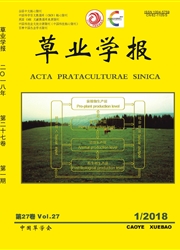

 中文摘要:
中文摘要:
大蒜素是从大蒜中提取的植物源抗生素。为探明大蒜素对辣椒炭疽病和辣椒疫病病菌的抑制活性及田间防治效果,采用生长速率法和孢子萌发法分别测定了大蒜素对辣椒炭疽病菌和辣椒疫病菌菌丝生长、孢子产生和孢子萌发的抑制作用,采用叶面喷雾法研究了大蒜素对2种病害的田间防治效果。结果表明,大蒜素可抑制辣椒炭疽病菌和辣椒疫病菌菌丝生长、孢子产生和孢子萌发,其活性随着浓度的提高而增强,对辣椒炭疽病菌EC50值分别为130.15,142.60和127.21μg/mL,对辣椒疫病菌EC511值分别为128.11,123.64和139.68μg/mL。田间试验结果表明,6%大蒜素水乳剂600~1200μg/mL处理第3次喷施后3d对辣椒炭疽病和辣椒疫病的防效分别为83.54%~88.25%和82.85%~85.88%,第3次喷施后14d分别为74.59%~79.16%和74.59%~78.01%,与对照药剂50%多菌灵可湿性粉刹1000μg/mL处理无显著差异;66.7~200.0μg/mL处理第3次喷施后3~14d对辣椒炭疽病和辣椒疫病的防效均低于76%,显著低于对照药剂50%多菌灵可湿性粉剂1000μg/mL处理。6%大蒜素水乳剂防治辣椒炭疽病和辣椒疫病的推荐使用剂量为600~1200μg/mL,在辣椒苗期和挂果期每隔10d喷施1次,连续喷施3次。
 英文摘要:
英文摘要:
Allicin is a botanical antibiotic extracted from garlic. To explore fungicidal activity of allicin against Colletotrichum capsici and Phytophthora capsici in the laboratory its inhibitory effects against mycelial growth and conidial production were assayed by measuring mycelial growth rate and conidial germination. Its efficacy in the field was tested by foliar spraying. Allicin showed inhibitory effects against mycelia growth, conidial production and germination of both fungi and its activity increased with increased concentrations. The EC50 , was 130.15, 142.60 and 127.21 μg/mL against mycelial growth, conidial production and conidial germination re spectively of C, capsici, and 128.11, 123.64 and 139.68 μg/mL respectively against P. capsici. Field tests showed that the efficacies of allicin 6G EW (emulsion in water) at 600 and at 1200 μg/mL against C. capsici were 83.54%- 88.25% respectively and 82.85%- 85.88% against P. capsici. On the third day after the third spray they were 74.59%-79.16% and 74.59%-78.01% respectively but at the fourteenth day after the third spray, they were not significantly different from that of the control [carbendazim 50% WP (wettalbe powders) at 1000 vg/mL]. The efficacies of allicin 6% EW at 200-600 ug/mL against C. capsici and P. capsici were less than 76% on the third to fourteenth day after the third spray, and were significantly lower than that of the control. The recommended dosage of allicin 6% EW against C. capsici and P. capsici is 600 -1200 μg/mL on pepper seedlings and during the fruiting period, spraying was done 3 times at 10 d intervals.
 同期刊论文项目
同期刊论文项目
 同项目期刊论文
同项目期刊论文
 期刊信息
期刊信息
